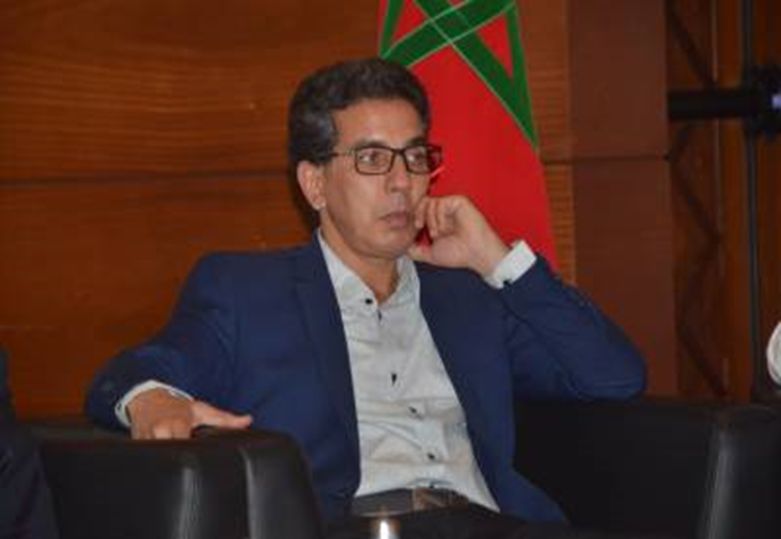Amazigh language and building the future from the words and fallacies of Kanbouri

Some friends sent me a link to a video of Mr. Idriss El-Kanbouri on social media, demanding an explanation of the fallacies it contains, and a refutation of his biased claim, which is summed up in the title he chose for it: “Amazigh extremism and the coming ruin.”
Although I personally did not know him before this video and had not read his books or writings and opinions on the subject before, I listened to Mr. Al-Kanbouri’s speech and found it devoid of any critical ideas or contents, whether scientific, cultural, or even controversial, that could be discussed, as much as it is a set of rulings. Ready-made values and fabrications are not based on knowledge and familiarity, or at least on good follow-up. We recorded the following observations:
- The contents of Mr. Al-Kanbouri’s words confirm that he is new to the cultural and public debate in our country, and is not familiar with the scientific, cultural and even polemical production that the Amazigh actors and the rest of the cultural components have accumulated in the fields of language, culture, identity and religion, especially in the points and topics that he raised in his speech, and it seems that he is late. He spoke a lot about the developments and achievements of the Amazigh discourse, the legal and cultural debate, and the state’s decisions and measures in this field, or he was opposed to them and resentful of them, so his fundamentalist and nationalist tendencies prevailed, or he was pushed to do so, especially at the present time, which is witnessing an important debate in the field of amending and developing laws, and engaged in fabrication and vilification instead of Sober intellectual and legal debate.

- The expressions of barbarism, chauvinism, ethnicism, fanaticism, and savagery were repeated many times in his speech, and through analysis of the discourse on the formal and linguistic levels, and there is no need to talk about the contents and ideas because his words do not rise to the level of criticism or cultural debate. It is clear that Mr. Al-Kanbouri insists on repeating valuable judgments and epithets through which he seeks to intimidate and disparage, thinking that this will achieve for him the punishment and condemnation that will spare him the need for a calm, objective, and convincing scientific and cultural debate, for which he has confirmed that he does not have the tools, knowledge, data, or literature necessary for that.
The speaker based his speech on intimidation and weak and fabricated judgments in linking the topics and the instrument of censure, and he was unable to construct an intervention or opinion that was coherent and respectful of objectivity and the reader or listener, even though he had intentionally chosen to tickle the ignorance and fundamentalist and nationalist sentiments of the groups he was addressing in his speech, thinking that the style Fabrication and floatation, which is one of the methods of populism, will achieve his propaganda goal and win over people. He is wrong because most of those who will watch or listen to his words will quickly realize that the person is far behind the developments of the Amazigh, cultural, religious and legal debate in our country, and does not possess the necessary knowledge, arguments and knowledge for that. Mr. Al-Kanbouri categorized himself and his words from the beginning, and from the title he chose himself and the phrases he repeated, into the category of attack and an attempt at free deception.
Through his speech, he confirmed his ignorance of the field of customs and the Amazigh legislative heritage, and his ignorance of all the specialized scientific, cultural, and legal literature, studies, and writings completed by specialized researchers and scholars and published by specialized institutions, and his ignorance of the contents of the Amazigh discourse on the subject, which is based mostly on the results of these intellectual and scientific works, which confirms that His circle of knowledge and knowledge regarding this topic, which he intruded upon, does not exceed the judgments, accusations, and contempt that are circulated in the narrow circle of fundamentalist and nationalist sect discussions, some social media outlets, or his group’s sessions.
- He tried to create contradiction and conflict, as dictated by his non-scientific, non-cultural, and non-noble goals, between the Amazigh language and its cultural, legal, and scientific discourse, which he is ignorant of, and between the Islamic religion, and between the elite, Amazigh actors, and Amazigh citizens in general, and between the Amazighs and the state, thinking that this talk would alienate the Amazighs and everyone. Moroccan citizens are actors, leaders, researchers and thinkers who work to do justice to the Amazigh language and to employ all its linguistic, cultural and identity components, and its positive democratic customary heritage, in the path of development and modernization sought by many societal forces in our country. In that, he is delusional and disappointed.

Finally, let Mr. Al-Kanbouri and those with him know that, with such outbursts and harsh words, they place themselves outside the present and the dynamism of society, and contrary to what he claims at the beginning of his speech, the Amazigh language is an issue at the heart of history, and at the heart of logic and common religious and national sense, and even at the heart of the path of development, citizenship, and building the future. What Moroccans and their living forces with a sound national forward-looking sense aspire to, as a state and a society.
Source : websites

